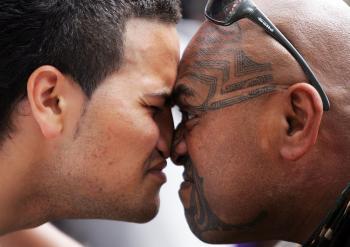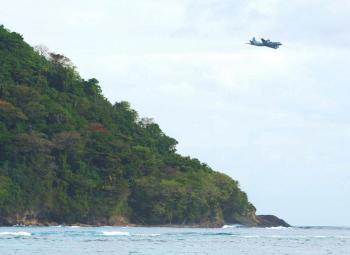NEW ZEALAND—New Zealand held its first major conference on human trafficking this week in Wellington.
Conference participants looked at ways of raising awareness further on the issue of human trafficking through the pacific, said coordinator Chris Frazer, Social Justice Advocate for the Salvation Army New Zealand, Fiji and Tonga Territory.
Overseas police departments, immigration lawyers and Non Governmental Organizations (NGOS) were among those taking part in the conference.
“It will take that kind of network to defeat a trafficking network,” Ms Frazer said.
The Salvation Army believes that ignorance and indifference are helping to fuel the trade in human beings.
‘The child picking cotton for our cheap t-shirts or cacao beans for our chocolate isn’t suffering in our backyard, so why should we care?’ illustrates the apathy that exists said the Salvation Army in a press release.
“There is no real hard evidence in terms of exact figures because of the clandestine nature of trafficking itself.”
Despite this, said Ms Frazer, they are aware of anecdotal evidence and that trafficking is a growing global problem and is also an issue with all Pacific countries.
Worker exploitation was a serious issue and needed further investigation, said Ms Frazer.
“For example, agents promising people visas to be able to work in New Zealand—so false promises of a great life in New Zealand without the backup of being able to really, genuinely, legally offer them those visas.”
Another factor of trafficking is globalization and its affect on the cost of goods, she said.
“Trafficking will be in certain goods in just about every home in this country.”
Slave labour is being used to produce clothing, sports shoes, coffee, chocolate, sugar, fireworks, glassware, jewellery and mobile phones and laptops.
Thousands of people are toiling long hours in unhealthy conditions producing consumer goods for western markets.
The recession is feeding the global supply of sex and labour slaves in some countries and New Zealanders are helping drive demand said the Salvation Army in a press release last month.
Deteriorating household living standards in countries where traffickers source their victims are making the impoverished more vulnerable to profiteering traffickers.
The conference was held by The Salvation Army, in conjunction with the Australian Institute of Criminology and The Pacific Immigration Directors’ Conference.
Fighting Against Human Trafficking
The Salvation Army believes that ignorance and indifference are helping to fuel the trade in human beings.
|Updated:


